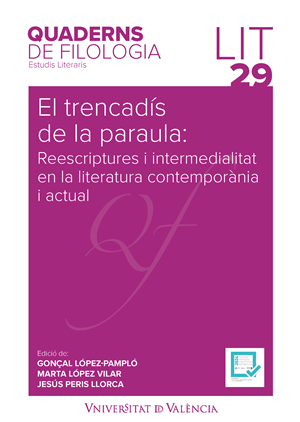Parodies of Pleasure: Remedios Varo’s Queer Surrealism in Narrative and Painting
DOI:
https://doi.org/10.7203/qdfed.29.28739Keywords:
surrealism, parody, queer studies, sexuality, feminism Abstract
Abstract
Remedios Varo (1908-1963) wrote numerous surrealist texts that dialogue with her prolific artistic production. Alchemy, feminism, and psychoanalysis have been studied as central themes in her paintings, yet this paper focuses on humor and parody in Varo’s written works –including her letters, short stories, and dreams– to uncover the seminal ideas and images that emerge in her visual art. Humor and parody are fundamental links between Varo’s narrative and paintings. She embraces the spontaneity of the surrealist écriture automatique and the illogical amor fou but at the same time pushes the limits of surrealist dogma and creates a uniquely nonpatriarchal universe in which the female has agency and the blurriness between the male and female anticipates current theories of queer sexualities. Seen through a theoretical lens of parody (Linda Hutcheon) and queerness (Jack Halberstam), Varo’s works propose an alternate reading of surrealism.
 Downloads
Downloads
Downloads
Published
How to Cite
-
Abstract7
-
PDF1
Issue
Section
License
 Este obra está bajo una licencia de Creative Commons Reconocimiento-NoComercial-SinObraDerivada 4.0 Internacional.
Este obra está bajo una licencia de Creative Commons Reconocimiento-NoComercial-SinObraDerivada 4.0 Internacional.
Authors who publish with this journal agree to the following terms:
- Authors retain copyright and grant the journal right of first publication with the work simultaneously licensed under a Creative Commons Attribution License that allows others to share the work with an acknowledgement of the work's authorship and initial publication in this journal.
- Authors are able to enter into separate, additional contractual arrangements for the non-exclusive distribution of the journal's published version of the work (e.g., post it to an institutional repository or publish it in a book), with an acknowledgement of its initial publication in this journal.
- Authors are permitted and encouraged to post their work online (e.g., in institutional repositories or on their website) prior to and during the submission process, as it can lead to productive exchanges, as well as earlier and greater citation of published work (See The Effect of Open Access).




